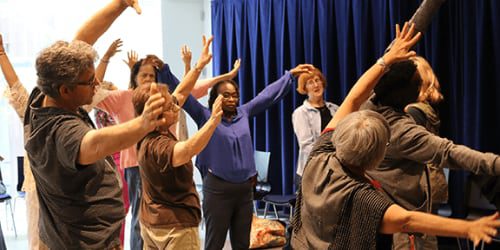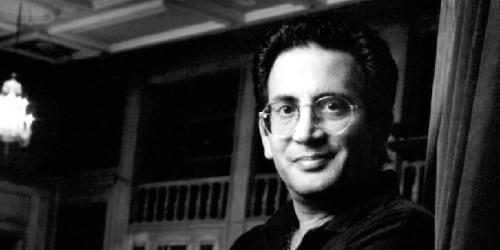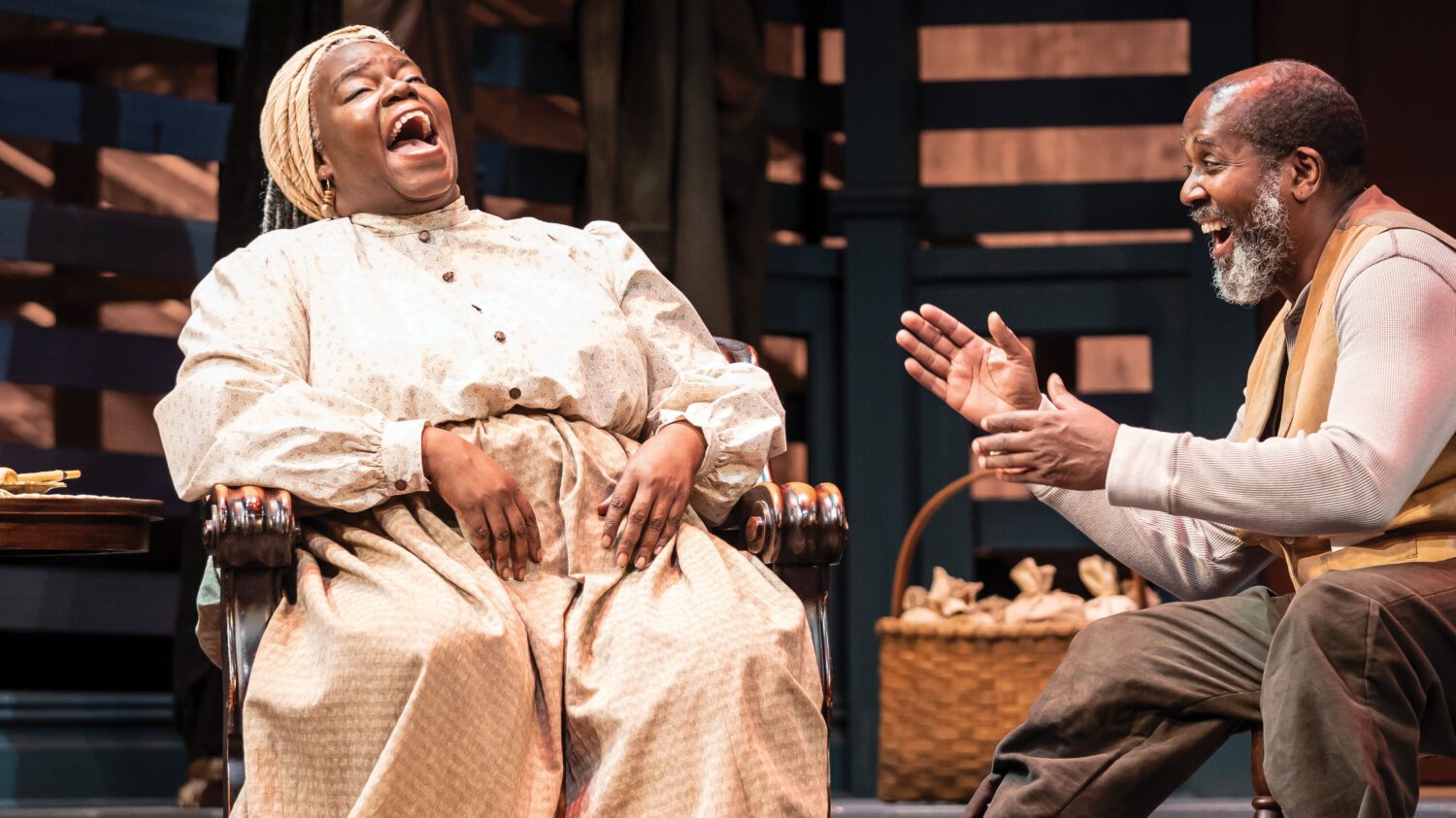Joe Turner’s Come and Gone is on sale now!
GET TICKETS
By Neena Arndt
When the Goodman moved from its old home on Columbus Drive to its current space on Dearborn Street in 2000, August Wilson—by then among the most celebrated of living American playwrights—took to the stage to deliver a keynote address. “This building is a challenge and an invitation to theater artists across America,” he intoned. “We who work in the American theater are heirs to a spiritual wealth that has taught us that theater is architecture of the human spirit that ennobles and empowers if it is honest and full of grace, and that its eloquence can only be fashioned out of uncompromising truth.”
Now, 24 years later, Goodman resident director Chuck Smith brings Wilson’s “uncompromising truth” to the very stage on which the playwright once stood. Wilson, who died in 2005 at age 60, leaves behind a remarkable body of work, most notably his American Century Cycle, which consists of 10 plays that chart the African American experience in the 20th century. Each play takes place in a different decade of the century, giving viewers a panoramic view of a time period that began with horses, buggies and Jim Crow laws and ended with the rise of the internet and cell phones—and the long shadow of slavery still looming over America. Most of the plays take place in Pittsburgh, Wilson’s home city and a common destination for African Americans who fled the South in the early 20th century. Joe Turner’s Come and Gone, set in a boardinghouse in Pittsburgh in the second decade of the century, offers a peek into the lives of Black Americans at a time when slavery was only 50 years in the past. Its title refers to the semi-mythical “mancatcher” Joe Turner, who in the first decade of the 20th century essentially re-enslaved sharecroppers by accusing them of a crime and forcing them to work on a chain gang as punishment. In his book Slavery by Another Name, historian Douglas Blackmon describes this practice as “neo-slavery,” and explains that it was legal because the 13th Amendment abolished slavery “except as punishment for crime whereof the party shall have been duly convicted.” The title of Wilson’s play implies that Joe Turner is no longer present; the play explores the aftereffects of imprisonment on one character’s life.
Longtime Goodman patrons may recall that between 1986 and 2007, the Goodman produced all 10 plays in the Cycle, becoming the first theater to do so. During most of those years, Wilson was a living playwright still completing his ouvre, and Goodman staff members knew him not as a distant name in a textbook or playbill, but as a warm, vibrant man. Executive Director/CEO Roche Schulfer recalls Wilson’s encyclopedic knowledge of jazz and blues, and his joy at discovering the musical riches of Chicago’s now-defunct Jazz Record Mart. Schulfer counts himself lucky to have spent two hours with Wilson, browsing through records and learning about jazz and blues from a man who had so absorbed their rhythms that his plays reflect them.
For director Chuck Smith, who is widely known for championing the work of Wilson and many other Black playwrights at the Goodman and elsewhere, a key moment with Wilson came when Smith was working as the dramaturg on the world premiere production of Gem of the Ocean in 2003. Smith suggested that Wilson’s idea of a “city of bones”—a mystical place at the bottom of the ocean inhabited by the souls of enslaved Africans who perished on slave ships—should become a bigger part of the play. As anyone familiar with the play knows, Wilson took Smith’s advice, and the city of bones became central to the narrative of Gem of the Ocean.
Nineteen years after Wilson’s death, his plays have become staples of the American theatre and are regularly taught in schools. What were new plays not so long ago are now contemporary classics. And though Wilson can no longer stand on the Goodman stage and give a stirring speech, his words remain in the memories of those among us who knew him and, perhaps more importantly, still live in the mouths of actors who make them echo through our theatre.
Neena Arndt is the Resident Dramaturg for Goodman Theatre.
























